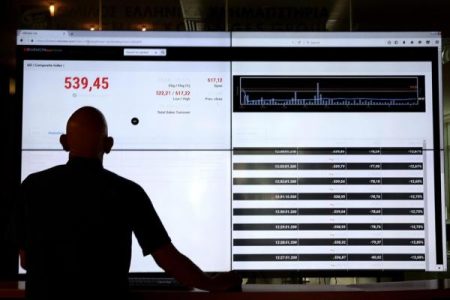© Reuters. FILE PHOTO: The headquarters of Wirecard AG, an independent provider of outsourcing and white label solutions for electronic payment transactions is seen in Aschheim near Munich, Germany, September 22, 2020. REUTERS/Michael Dalder/File Photo
By Luc Cohen
NEW YORK (Reuters) -A U.S. court on Thursday sentenced an Israeli private detective to 6-2/3 years in prison for organizing global hacking campaigns against thousands of people including climate change activists and critics of German company Wirecard.
Aviram Azari, a former policeman detained in the United States since 2019, pleaded guilty last year to three counts of wire fraud, conspiracy to commit hacking and aggravated identity theft.
In sentencing Azari in federal court in Manhattan, U.S. District Judge John Koeltl said the hacking had a “devastating impact” on its victims.
Prosecutors had asked that Azari, 51, get eight to nine years in prison, saying that his firm earned nearly $5 million dollars over five years for managing hacking campaigns which targeted many public interest groups among other victims.
His defense lawyer, Barry Zone, asked for a sentence of no more than five years, arguing that Azari had accepted responsibility and contracted a “debilitating medical condition” while jailed in New York.
“Your Honor, I made a mistake,” Azari said in court through a Hebrew interpreter before the sentence was handed down. “I take responsibility, full responsibility, for my actions. I regret with all of my heart for all of the victims.”
Prosecutors said now-defunct payment processor Wirecard, which was a member of Germany’s blue chip before filing for insolvency in 2020, hired Azari to target individuals and financial firms that had criticized the company.
According to prosecutors, Azari also used hackers to steal emails from climate activists who were campaigning against U.S. oil company Exxon Mobil Corp (NYSE:), which then cited media articles based on those messages to fend off probes by U.S. state attorneys general.
Prosecutors did not allege any link between Azari and Exxon, which denied any connection to Azari or his hacking campaign. Three victims who spoke in court, including two climate activists, said they still wanted to learn his clients’ identities.
Azari was the subject of an investigation last year by Reuters that revealed how he and other private eyes used mercenary hackers in India to help wealthy clients gain an advantage in court battles.
Addressing his victims after sentencing, Azari said, “There will come a day” when he could provide more information. “You don’t know everything,” he said.
Read the full article here














